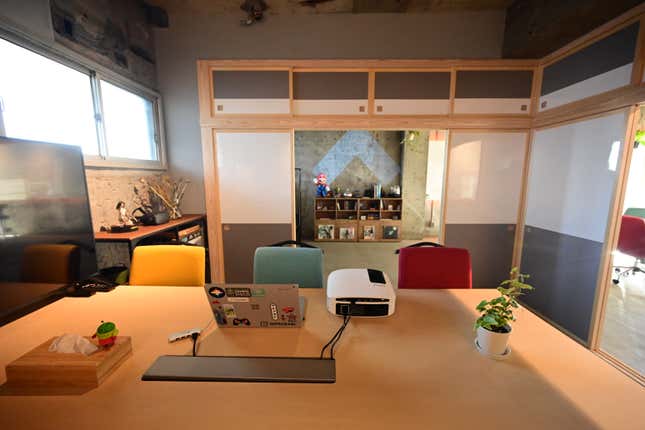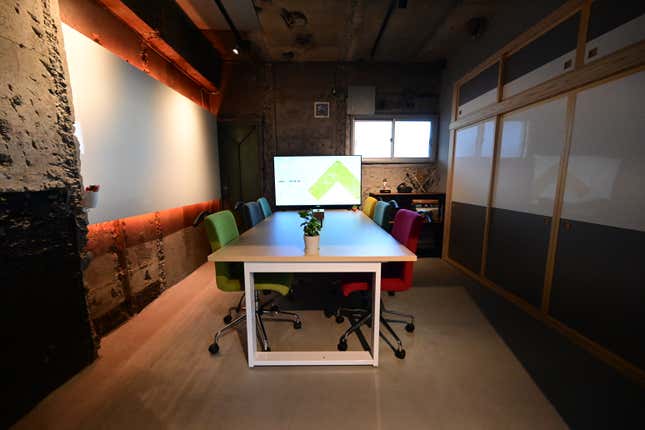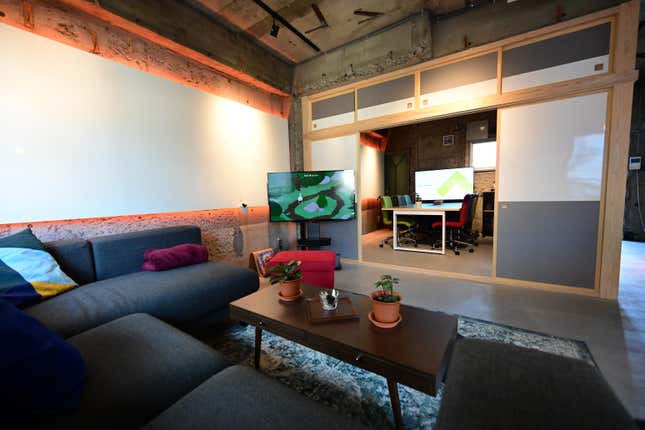
Some of the greatest games ever developed were made in Japan. The institutional know-how and skills are there. But the country’s indie game scene still hasn’t broken through in a major way like its counterparts in the West.
That’s something a new project called Asobu it’s hoping to change. Meaning “play” in Japanese, Asobu is a digital and physical space intended to support Japan’s indie community and help foster new independent game developers. While indie incubators exist abroad, until now they’ve not really been a thing in Japan.
“What’s been happening in the West is an indie game revolution,” says Asobu co-founder Mark MacDonald. The developer who’s main gig is working at Tokyo-based Enhance tells Kotaku, “There are signs of life in Japan—BitSummit is very important—but the process needs to be accelerated.” Success breeds success, MacDonald argues. “The result will snowball because once people see others do it, they feel like they can do.”

Asobu has a headquarters in Shibuya, Japan with offices indie devs can use once the covid-19 situation permits and life again returns to normal. The space will also host game jams, play-testing sessions, and regular events and meet-ups.
It’s designed to help build a sense of community among the indie scene in Japan, says MacDonald, as well as provide practical information to indie devs as they navigate not only the art of game development, but the business and publicity end. Many indie game devs in Japan might have the game-making chops but might not know how to get their work out to a wider audience.
“Also, a lot of cutting-edge game development info is in English,” he adds, “and we want to help with that.”
Due to the current pandemic, Asobu has shifted online, with an open Discord chat server, Indie Collection (“InColle”) Twitch streams, and online indie showcases, such as the upcoming September 21 one.
Membership is free thanks to funding from the Makers Fund and sponsorship deals from Microsoft’s ID@Xbox indie program, book publisher Kodansha (full disclosure: Kodansha published my first two books), Kickstarter, and more. MacDonald says there are no strings attached.
“The idea is not to make money,” says MacDonald, adding that if Asobu could break even thanks to the sponsors, that would be great. “Game developers come to us and ask, ‘What’s the catch?’ There is no catch. We just want them to pay it forward.”

The intention is, by building a community, those indie game devs in Japan who break through can pass along their experiences and knowledge to the next generation. This in turn, it’s hoped, will help the entire Japanese indie scene.
“We want to do anything we can to help the indie gaming scenes in Japan,” says MacDonald. “That’s all.”
